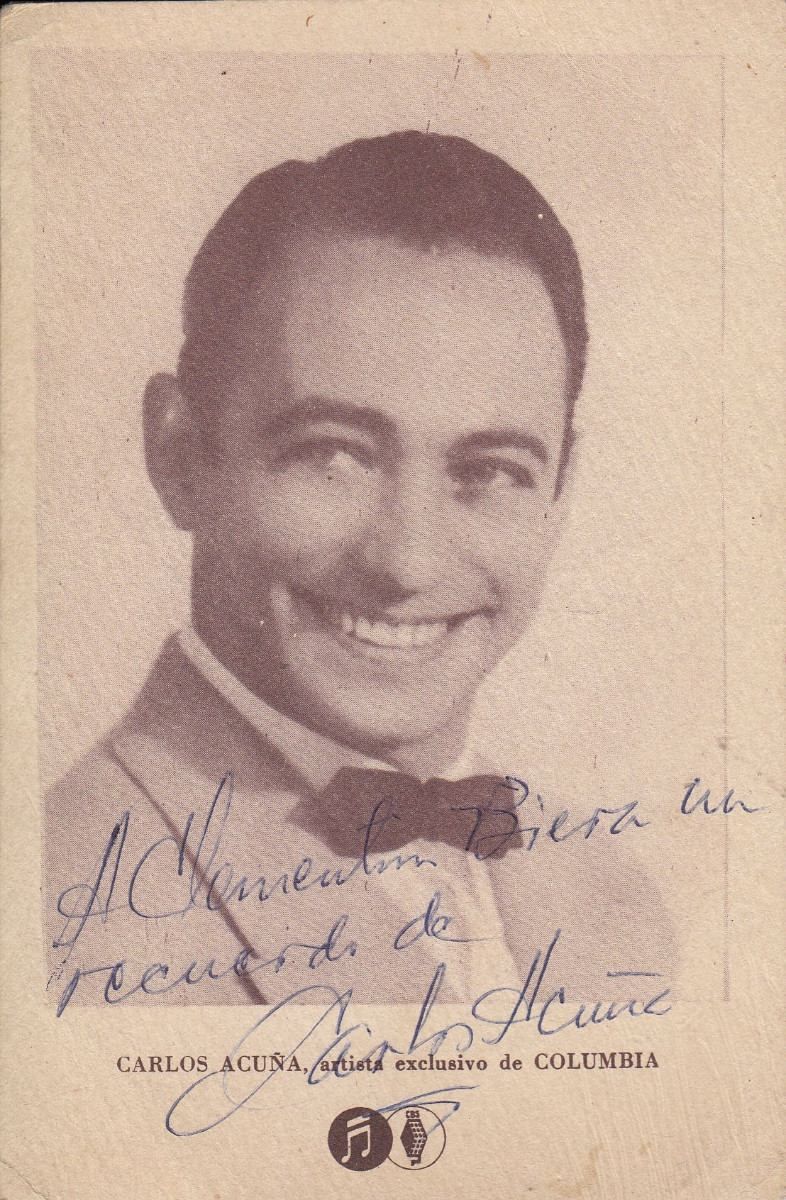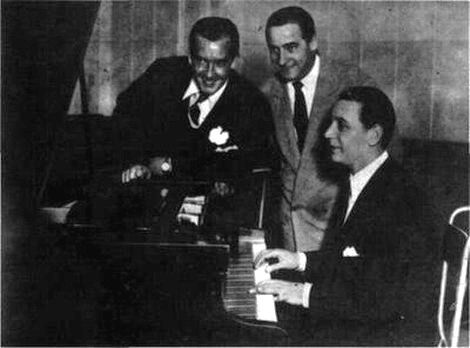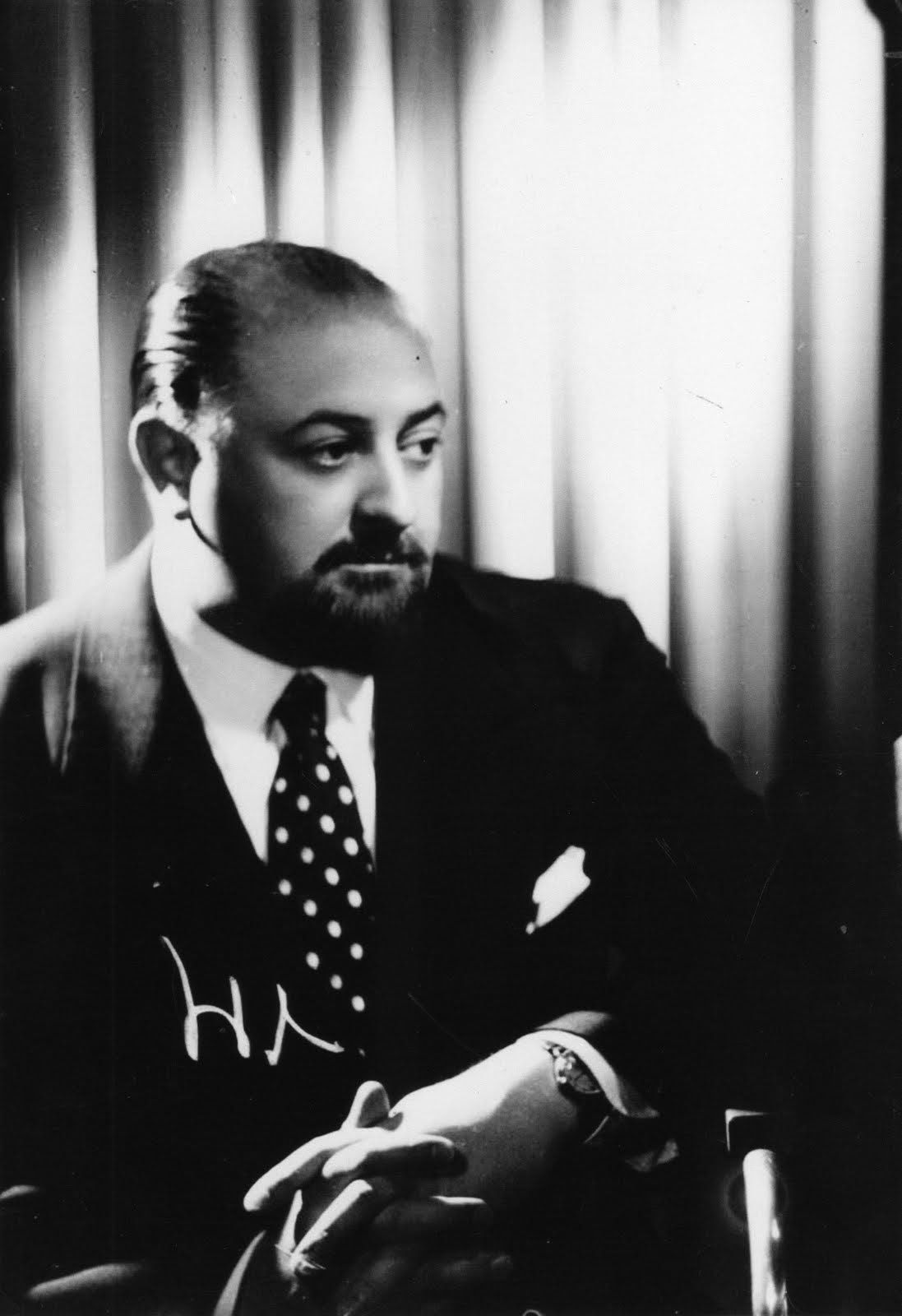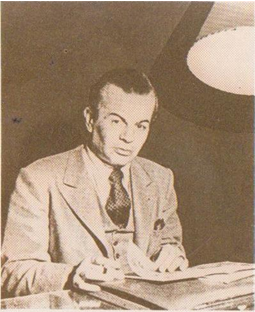“Suerte loca” by Enrique Rodriguez y su Orquesta Típica with Armando Moreno in vocals, 1941. (English translation of the lyrics)
 Anselmo Aieta
Anselmo Aieta
Bandoneonist, composer and leader
(5 November 1896 – 25 September 1964)
A genuine product of a period, Aieta represents the essentially intuitive and self taught musician whose privileged musical ear and innate talent generously replace his academic lacks.
Nevertheless, it is in his overwhelming work as composer where the flame of his geniality reaches a brighter light, either due to the huge volume of his output or because of that display of originality, beauty and vigor that beats in each one of the melodies born out of his inexhaustible creative spring which have consecrated him as one of the top rhapsodes of the people. He was a painter of happiness and sadness that changed colors for sounds.
The peak of his inspiration was in the twenties and in the early thirties: “Suerte loca” (1925). Continue reading at www.todotango.com…
“En el naipe del vivir
suelo acertar la carta de la boca,
y a mi lado oigo decir
que es porque estoy con una suerte loca.
Al saber le llaman suerte..!
Yo aprendí viendo trampearme,
y ahora sólo han de coparme
cuando banquen con la Muerte.
En el naipe del vivir,
para ganar, primero perdí.
Yo también entré a jugar
confiado en la ceguera del azar
y luego vi que todo era mentir
y el capital en manos del más vil…
No me creés…¡Te pierde el corazón!
¡Qué fe tenés!…¿No ves que no acertás?
¿Que si apuntás a cartas de ilusión
son de dolor las cartas que se dan?
No me envidies si me ves
acertador, pues soy el Desengaño…
Y si ciego así perdés,
es que tenés los lindos veinte años…
El tapete es la esperanza
y, a pesar de lo aprendido,
si me dan lo que he perdido
vuelve a hundirme la confianza…
¡Suerte loca es conservar
una ilusión en tanto penar!”
English translation:
I usually guess the card on the top,
and by my side I hear them say
that it is because I have crazy luck.
It is “knowledge” what they call “luck”…!
I learned this watching them cheating,
and now they would only defeat me
when they count with Death’s help.
In life’s deck of cards,
to be able to win, first I lost.
I also went to play
confident in the blindness of chance
and then I saw that everything was lying
and the money in the hands of the most despicable…
You do not believe me… Your heart is making you lose!
How much faith you have!… Do you not see that you’re wrong?
That if you anticipate receiving cards of hope
they give cards of pain?Do not envy me if you see me
winner, because I am the Disappointment…
And if blind, you lose,
is that you are a beautiful twenty-something…
The playing table is hope
and, despite what has been learned,
if they would give me what I have lost
my confidence sinks me again …
Crazy luck is to keep
your hopes while suffering so much!
Music: Anselmo Aieta.
Lyrics: Francisco García Jiménez.
Listen and buy:
 |
 |








